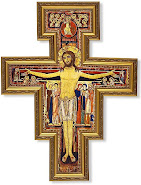 John 17:20-23: v20 "I do not pray for these only, but also for those who believe in me through their word, 21 that they may all be one; even as thou, Father, art in me, and I in thee, that they also may be in us, so that the world may believe that thou hast sent me. 22 The glory which thou hast given me I have given to them, that they may be one even as we are one, 23 I in them and thou in me, that they may become perfectly one, so that the world may know that thou hast sent me and hast loved them even as thou hast loved me."
John 17:20-23: v20 "I do not pray for these only, but also for those who believe in me through their word, 21 that they may all be one; even as thou, Father, art in me, and I in thee, that they also may be in us, so that the world may believe that thou hast sent me. 22 The glory which thou hast given me I have given to them, that they may be one even as we are one, 23 I in them and thou in me, that they may become perfectly one, so that the world may know that thou hast sent me and hast loved them even as thou hast loved me."
The Reformation principle of "each man with a Bible and his own interpretation" has brought about the tragic results we see today among numerous Christian denominations. There are over 30,000 divisions and denominations in Christendom that are ripping and tearing the Body of Christ.
In the Gospel of John, Chapter 17, notice that Jesus prays for the future generations of Christians, that they be "One" and "Perfected in Unity", not ripped apart by divisions and denominations. Those who continue to "protest' against the Catholic Church are like a nation that divides into tens of thousands of competing, disagreeing factions but that still claims to have an invisible unity. St. Paul also condemns factions and divisions in the Church in his first letter to the Corinthians. All of this has unfortunately lead to the new and radical theology of the "invisible Church", where one only needs his bible and love for Christ. No Church, no community, no gathering, "just me and Jesus, and my bible." Where will the results of Sola Scriptura lead to next?
About a year after his Ninety-Five Theses, Martin Luther wrote a letter to Pope Leo X about his concern of the schism brought about by his teachings. Luther in writing to Pope Leo X said, "I never approved of a schism, nor will I approve of it for all eternity. . That the Roman Church is more honored by God than all others is not to be doubted. . Though nowadays everything is in a wretched state, it is no ground for separating from the Church. On the Contrary, the worse things are going, the more should we hold close to her, for it is not by separating from the Church tha twe can make her better. . There is no sin, no amount of evil, which should be permitted to dissolve the bond of charity or break the bond of unity of the Body."
[1] Letter of Martin Luther to Pope Leo X. January 6, 1519. Patrick O'Hare. The Facts about Luther, pg 256.
[2] Crossing The Tiber. Stephen K. Ray. Ignatius.
 John 17:20-23: v20 "I do not pray for these only, but also for those who believe in me through their word, 21 that they may all be one; even as thou, Father, art in me, and I in thee, that they also may be in us, so that the world may believe that thou hast sent me. 22 The glory which thou hast given me I have given to them, that they may be one even as we are one, 23 I in them and thou in me, that they may become perfectly one, so that the world may know that thou hast sent me and hast loved them even as thou hast loved me."
John 17:20-23: v20 "I do not pray for these only, but also for those who believe in me through their word, 21 that they may all be one; even as thou, Father, art in me, and I in thee, that they also may be in us, so that the world may believe that thou hast sent me. 22 The glory which thou hast given me I have given to them, that they may be one even as we are one, 23 I in them and thou in me, that they may become perfectly one, so that the world may know that thou hast sent me and hast loved them even as thou hast loved me."








